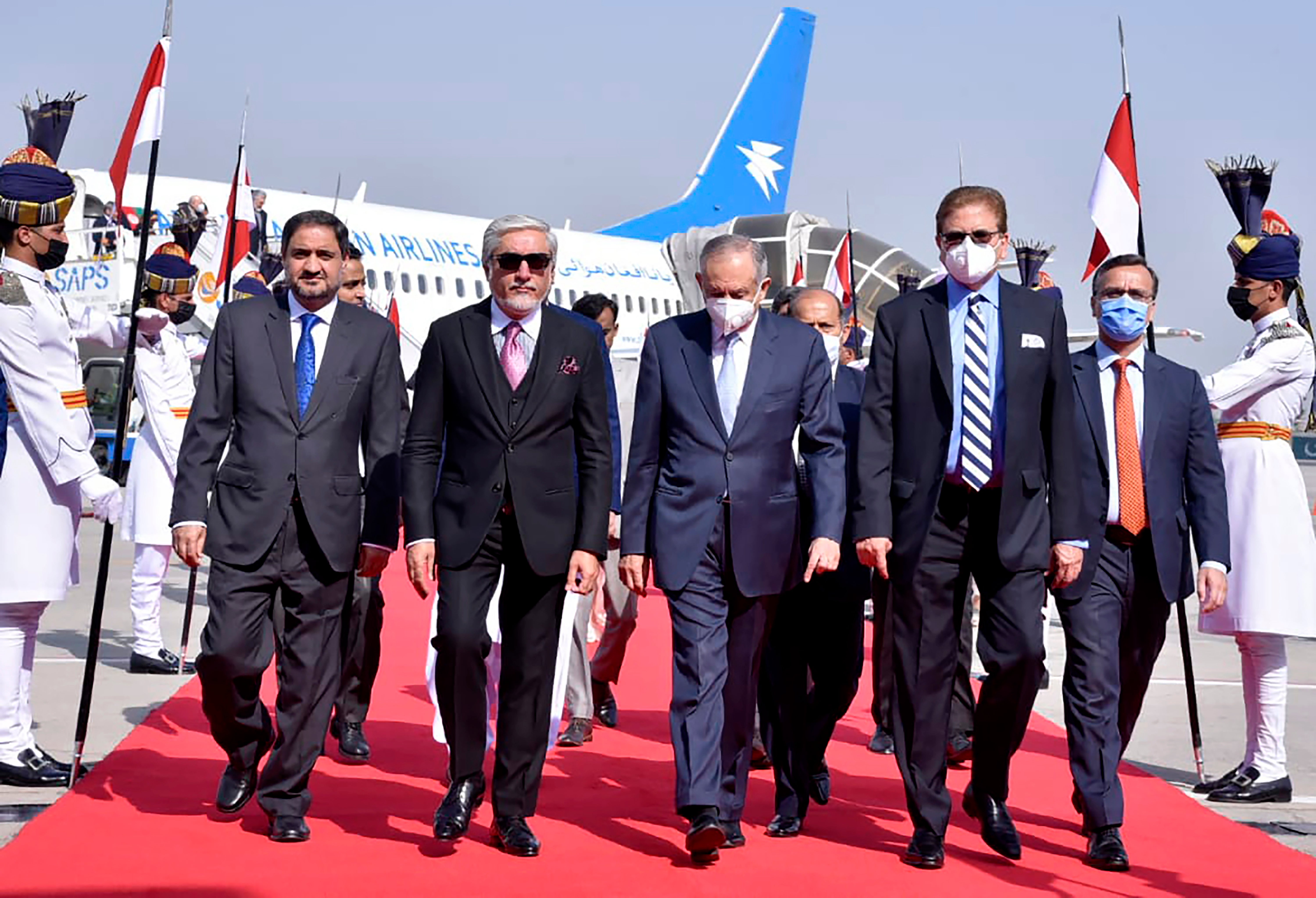Top Afghan negotiator in Taliban talks arrives in Pakistan
Afghanistan’s top official in negotiations with the Taliban has arrived in Pakistan’s capital on a three-day trip

Your support helps us to tell the story
From reproductive rights to climate change to Big Tech, The Independent is on the ground when the story is developing. Whether it's investigating the financials of Elon Musk's pro-Trump PAC or producing our latest documentary, 'The A Word', which shines a light on the American women fighting for reproductive rights, we know how important it is to parse out the facts from the messaging.
At such a critical moment in US history, we need reporters on the ground. Your donation allows us to keep sending journalists to speak to both sides of the story.
The Independent is trusted by Americans across the entire political spectrum. And unlike many other quality news outlets, we choose not to lock Americans out of our reporting and analysis with paywalls. We believe quality journalism should be available to everyone, paid for by those who can afford it.
Your support makes all the difference.Afghanistan s top official in negotiations with the Taliban arrived in Pakistan s capital Monday on a three-day trip during which he will meet with the country's prime minister and other government officials.
Abdullah Abdullah who leads the Afghan High Council for National Reconciliation, was received by top government officials on arriving in Islamabad. Apart from meeting with Prime Minister Imran Khan the Afghan reconciliation leader also will meet with President Arif Alvi, Foreign Minister Shah Mahmood Qureshi and other officials.
The council represents the Afghan government in historic peace negotiations with the Taliban which began in Qatar on Sept. 12. Those talks represent the most-serious effort yet at ending decades of war in Afghanistan that followed the 2001 U.S.-led invasion that toppled its Taliban government, which then hosting al-Qaida leader Osama bin Laden who planned the Sept. 11 attacks.
The Afghan-Taliban talks come after a deal signed in February between the U.S. and the Taliban. That aims to allow the U.S. to withdraw from Afghanistan and end the longest military engagement in American history.
Many Taliban leaders have lived in Pakistan since the 1980s. In those years they were part of the Afghan mujahedeen, allies of the U.S. in ending the 10-year occupation of the country by the Soviet Union.
Pakistan has denied giving sanctuary to Taliban members following their ouster in 2001. However, both Washington and Kabul routinely accuse Islamabad of giving them a safe haven, citing the Taliban long ties with Pakistan's powerful Inter-Services Intelligence agency.
Khan publicly has said his government facilitated the talks. He said now it was now up to the Afghans to seize this opportunity.
Abdullah's visit “will provide an opportunity for wide-ranging exchange of views on the Afghan peace process and strengthening of Pakistan-Afghanistan bilateral relations and people-to-people interaction," Pakistan's Foreign Ministry said in a statement. “Pakistan fully supports all efforts for the peace, stability and prosperity of the Afghan people."